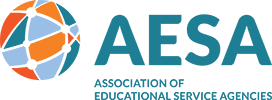
AESA Perspectives Journal
Welcome to AESA's Perspectives Journal, where we explore critical issues and forward-thinking ideas shaping the educational landscape. Our goal is to offer a platform for educators, leaders, and experts to share their insights and experiences on a wide array of topics, ranging from educational innovation and research to policy and promising practices.
We hope that these articles not only encourage reflection but also spark action—contributing to transformative improvements in classrooms, schools, and the broader educational community. Thank you for engaging with Perspectives Journal and joining us in this ongoing exploration of the future of education.
Governance Structure
Editor & Editorial Board
The editor of the Perspectives Journal is appointed by the AESA Executive Council for a five-year term. The Perspectives Journal Editorial Board is comprised of members recommended by the editor and the Executive Director, with final approval by the AESA Executive Council. Board members are appointed to four-year staggered terms, ensuring continuity and balanced representation. Each of the four AESA regions—Eastern, Southern, Central, and Western—are represented by at least one and no more than two board members, ensuring that the board is composed of 4 to 8 members in total. This governance model ensures that the Perspectives Journal maintains its high standards while reflecting the diverse needs and voices of the AESA membership.
Make a Submission
AESA encourages members to send manuscripts for possible Perspectives Journal publication! Please follow the Perspectives Journal Article Submission Guidelines.
Want to receive the Perspectives Journal emails? If you are an AESA member and you would like access to the Perspectives Journal emails, please email your name, organization name, and title to info@aesa.us.
Each year, 35 secondary social studies teachers from Appalachian Ohio join a summer professional development program, traveling through Wyoming, Idaho, and Montana. This immersive experience promotes reflection, professional growth, and enriched teaching by exposing educators to diverse contexts and expert guidance. The program addresses rural challenges like limited travel opportunities while enhancing content knowledge, teaching effectiveness, and student engagement.
Read MoreThis document highlights seven key ways Educational Service Agencies (ESAs) can enhance support for multilingual learners (MLs) in U.S. schools. It provides guidance on legal responsibilities, translation services, equitable evaluations, early education multilingualism, specialized programs, professional development, and culturally responsive teaching. The focus is on asset-based approaches to foster the academic and social success of MLs, benefitting the educational landscape for all students.
Read MoreThe AESA State Examiner is a “look back” at the most recent month’s legislative activities. The May 2024 edition includes a review of state-level legislative issue monitoring; state-level budgets and finance; statehouse news; national reports; and advocacy tips. The May 2024 edition examines college and career readiness including apprenticeships, career technical education, dual enrollment, and related policies.
Read MoreBack to Blog By Kay Shurtleff Lack of respect, high stress, long hours, low pay, high stakes tests. These are all reasons teachers give for leaving the classroom and sometimes even the profession. With so many districts operating with unfilled positions, the teacher shortage is an issue that demands attention. Rather than approaching the problem…
Read More